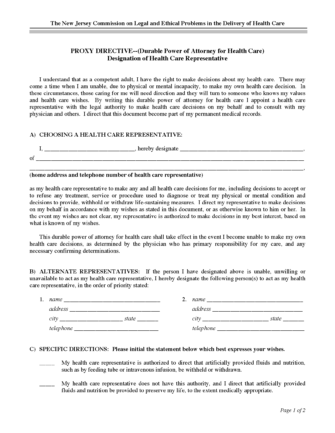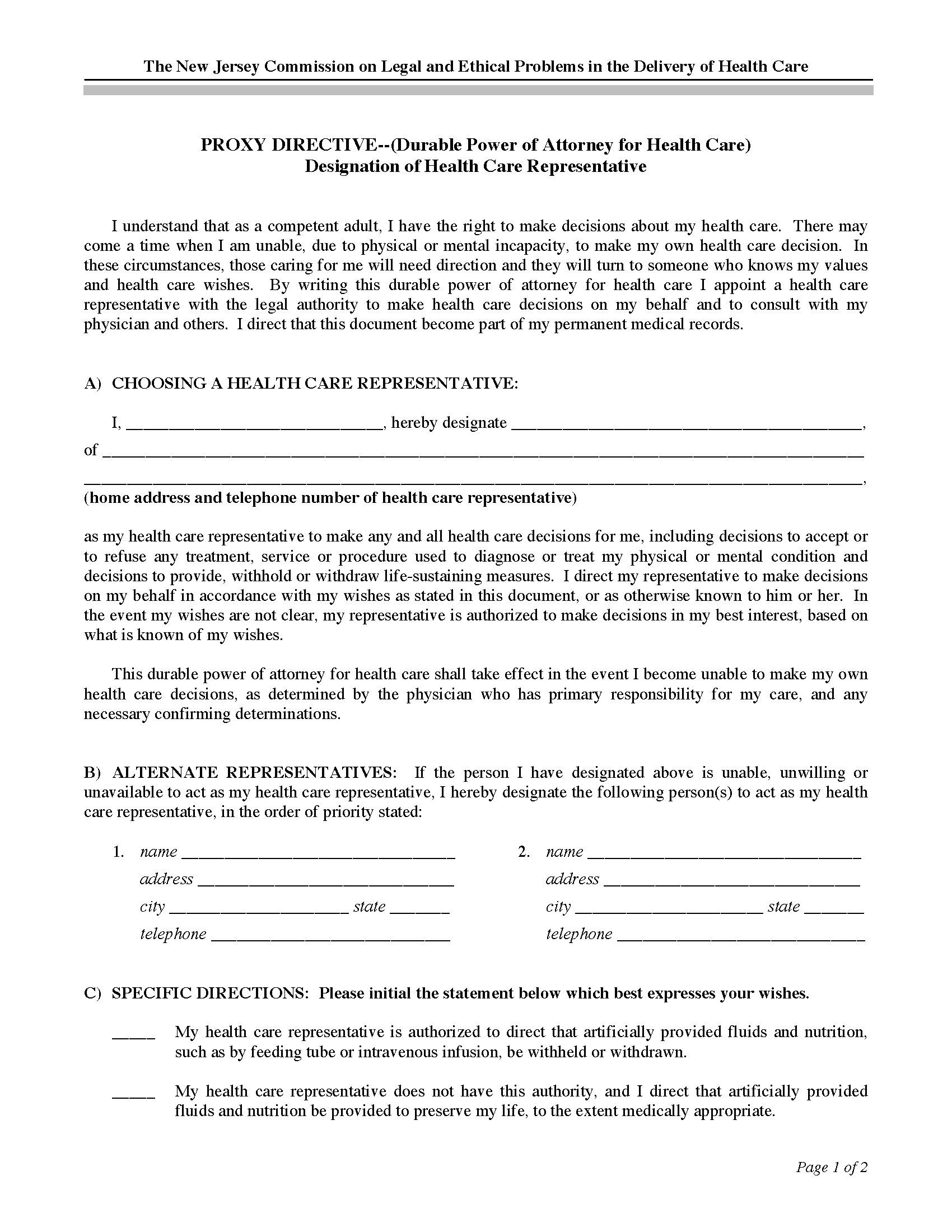Signing Requirements
A medical POA must be signed in the presence of two witnesses or acknowledged by a notary public. If attested by witnesses, the healthcare representative cannot be a witness.[1]
Power of Attorney (Preview)
Legal Definition
“Proxy directive” means a writing which designates a health care representative in the event the declarant subsequently lacks decision making capacity.[2]
Revocation
If the principal wishes to revoke their medical power of attorney (or “proxy directive”), they must[3]:
- Perform any act evidencing an intent to revoke the power of attorney; typically by notifying the healthcare representative, a physician, a nurse, or any other healthcare professional verbally or in writing.
- Create a new medical power of attorney or proxy directive.
If the principal’s spouse is named as their health care agent and they get divorced or separated, their agency automatically revokes.[4]

